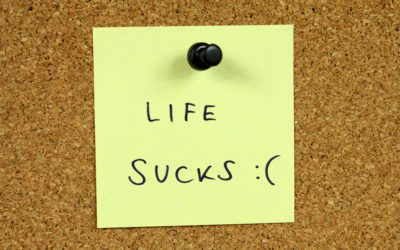One of the questions I encourage students to reflect on throughout our Supercoach Academy trainings is this:
What’s really on offer?Click To TweetIn other words, if somebody really “gets” what it is we’re speaking with them about, what is it that they got?
When I’ve asked this question of my clients over the years, the answers have varied dramatically:
- More peace of mind in the midst of a crazy life
- Problems look simpler and solving them becomes easier
- Freedom
- I got my sense of humor back
- Better decision making with less angst
- Clarity of desire and intention
- Game changing insights about my business/relationship/life
etc.
Yet of all the things people get, the gift that keeps on giving is a kind of waking up to a deeper dimension of ourselves – that space within us where we’re not only OK no matter what, we can see that we always have been in spite of whatever we’ve been through.
That space within is sometimes called our “innate health”, because it was already there before we went looking for it and can neither be created nor destroyed. And when we wake up to or “realize” this fundamental OKness, we stop spending so much time and energy on fixing ourselves and free our minds up to both enjoy what we already have and create more of what we want and need.
This doesn’t mean the world will suddenly start dancing to our tune, our bodies will instantly heal of all aches, pains, and illnesses, and we’ll never know sadness, fear, insecurity, or worry ever again. It just means that even as life keeps throwing up new surprises, we are able to be with what’s happening with sufficient grit to keep moving forward and sufficient grace to enjoy the ride.
That’s why of all the names the fruits of an inside-out understanding has gone by – Psychology of Mind, neo-cognitive psychology, the Three Principles, etc. – my favorite to this day is “Health Realization”. Originally coined by Dr. Roger Mills, the name came from seeing that when people are able to even temporarily quiet their insecure thoughts and overactive imaginations, they gain immediate access to inner wisdom, common sense, and an innate mental health.
My own “health realization” came in the midst of drinking a beer and watching a DVD of a talk given by the mystic Syd Banks. At one point during the talk, he said “Every human being is sitting in the middle of mental health – they just don’t know it.” Beer came squirting out of my nose and I burst into fits of laughter. Because somehow I knew that despite all my years of therapy, depression, and suicidal ideation, it was true.
As I wrote in The Inside-Out Revolution:
…for Syd to say that mental health was natural went against everything I’d learned – and taught – in my first forays into the world of self-help.
Yet I could instantly see the truth of it. After all, babies don’t need therapy. And while I can’t honestly say I remember what it felt like to be in the womb, I knew from watching my own kids grow up that, other than during periods of physical discomfort, they lived in a pretty continual state of mental well-being for the first few years of their lives. In seeing the original grace of my innate mental health, I felt as though the burden of nearly 40 years of struggle had been lifted off my shoulders.
Does this mean I have always felt good in the eleven years or so since I had that initial realization?
Of course not. Just because wellbeing is our our nature doesn’t mean we’re always going to feel wonderful. We can get caught up in the whirlwind of our thinking in any moment, and in so doing become instantly subjected to every emotional color in the spectrum.
But to say that means that wellbeing is temporary would be like saying that the presence of heavy clouds is indicative of the disappearance of the sun. Actually, the sun is there even in our darkest hour – it’s just that sometimes there’s something between us and our clear seeing. In the same way, our mental health is undiminished by our moments of cloudy thinking and feeling.
Interestingly, I ‘ve found that for most people, once they begin to realize their own mental health, they become interested in helping the people around them wake up to theirs. Fortunately, that’s easier than you might think.
If we want to help people realize their mental health, first and foremost, we need to see that it is always already there, underneath the noise of their symptomology and undiminished by their circumstances.Click To TweetIn fact, I’ve come to see that any time I am struggling with a family member, work colleague, friend, or client, it’s because I’ve lost sight of their health and have begun speaking exclusively to the noise in their head.
And as I recently heard my friend and colleague Dr. Bill Pettit say at a conference where we were speaking:
“Don’t talk to the mask – talk to the soul behind the mask and eventually that’s who’ll talk back to you.”
With all my love,![]()
PS – Beginning on the 1st of July, I’ll be leading a three week online exploration of the principles behind the human experience called The Advanced Course. If you’re interested in going deeper into this conversation, we’ll be spending one of the weeks specifically exploring realizing mental health in greater depth!










